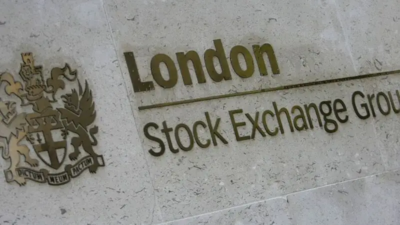Where in Europe do you pay the highest capital gains tax?
Capital gains tax is a tax which is applied on the sale of capital assets, or assets which are not part of usual inventory. These usually include things such as bonds, stocks, real estate, cryptocurrency, vehicles, jewellery and more.
Usually, you only have to pay capital gains tax on an asset once it is sold. Long-term capital taxes are usually applied on gains made from investments held for over a year. On the other hand, short-term gains, on assets which are owned for a year or less, are taxed at the owner’s normal income tax rate. This ends up being higher than the capital gains tax on long-term investments.
Which European country imposes the highest capital gains tax?
According to the Tax Foundation’s 2024 European capital gains tax report, Denmark levies the highest capital gains tax at 42%. Norway is second at 37.8%, with Finland and France following at 34% each. Ireland clocks in at fifth position, at 33%.
Moldova applied the lowest capital gains tax at 6%, while Bulgaria and Romania came in at 10% each and Croatia at 12%. Greece and Hungary both followed with 15%.
Several countries, such as Belgium, Czech Republic, Georgia, Luxembourg, Malta, Slovenia, Slovakia, Switzerland and Turkey don’t impose a capital gains tax.
Why do Denmark and Norway impose high capital gains tax?
Alex Mengden, global policy analyst at Tax Foundation, said: “Denmark and Norway, the two countries with by far the highest capital gains tax rates, explicitly tie them to their statutory personal income tax rates, with some adjustments. One possibility why countries with a higher tax burden on labour may tax capital gains at higher rates could be to prevent people from disguising their labour income as capital income.
“However, when we are comparing the rates for long-held shares without substantial ownership, this reasoning does not apply. Instead, capital gains tax creates a bias against savings by imposing an additional layer of taxation on the portion of people’s after-tax income that they save and invest for the future, instead of spending it right away.
“That’s why even a country like Belgium, with the highest tax burden on labour in the OECD does not tax capital gains if they are regarded as savings income and not professional income,” Mengden said.
France applies a flat 30% rate on capital gains, with high-income earners paying an additional 4%. Lower income Taxpayers have the option of choosing to have their capital gains Taxed at the progressive income Tax rates for securities.
If so, they may receive a rebate for the amount of time they have held on to their securities, but this is solely valid for shares or securities which were bought before 1 January 2018.
For shares held between two to eight years, a rebate of 50% can be obtained, with a relaxation of 65% for shares held for more than eight years.
Finland taxes capital and earned income separately. Some examples of capital income are capital income from entrepreneurial income, or activities, profit-sharing and capital gains, income from timber sales and dividend income. Rental income, income from extractable land resources and specific types of interest income are also included.
Finland also has a progressive capital gains Tax, with capital income under €30,000 being Taxed at a 30% rate. A 34% levy is applied on Taxable capital income above that threshold.
Lower capital gains Taxes in Eastern and southeastern European countries such as Moldova, Bulgaria, and Romania, amongst others, make them attractive places to do business for a variety of companies.
Tax breaks, cheap land and labour, as well as fairly straightforward laws to set up companies have also contributed to this.
Capital income in developing countries is usually earned from the exchange or sale of real estate, whereas in developed countries, it is mostly from securities sales. This is mainly due to a major proportion of developing countries’ wealth and capital being tied up in real estate. Furthermore, because of bearer shares being widely used, capital gains taxes on shares are not as effective either.
Developing countries also usually tax capital gains on real estate investments, due to them being seen as speculative and not very socially productive. As a result, taxes on this kind of investments are also meant to curb them somewhat, with the hopes of pointing citizens towards other investments more aligned with the economic and social goals of the country.
Capital gains taxes can be double-edged swords
Higher capital Taxes usually lead to people being less inclined to save, or hold on to their assets for a longer period of time, preferring to increase their immediate consumption. For investors as well, capital gains Taxes can be both a boon and a bane.
This is because capital gains are usually taxed at a lower rate than regular income, giving investors an edge over regular salaried workers. However, short-term capital gains, on investments held for less than a year are usually taxed higher than long-term ones.
This means that to make the most of the tax, people need to hang on to their investments for at least a year, and usually much longer. This is known as the lock-in or realisation period, which also leads to fewer sales and lower income generated for both the investor and nationally.
Another advantage is that capital losses can sometimes be written off in a person’s total tax bill, helping them save more money.
Although a few European countries such as Spain have capital gains Tax exemptions for senior citizens, in this case over 65 years old, others such as the UK do not, making the Tax vary significantly across the country.
This information does not constitute financial advice, always do your own research on top to ensure it's right for your specific circumstances. Also remember, we are a journalistic website and aim to provide the best guides, tips and advice from experts. If you rely on the information on this page then you do so entirely at your own risk.
Maybe You Like
London Stock Exchange urged to do more to hold onto retail traders
The UK stock market needs to improve investor communication and engagement in order to retain its individual traders, according to a report from online trade and investor provider CMC Markets. ADVERTISEMENTUK retail investors are increasingly...
Hargreaves Lansdown rejects private equity takeover bid
The UK investment platform says the offer from a group including the Abu Dhabi Investment Authority undervalues the firm. ADVERTISEMENTHargreaves Lansdown has rebuffed a takeover proposal worth £4.67 billion (€5.48 billion) made...
Ferrovial set to offload UK regional airports amid Heathrow deal uncertainty
Ferrovial is planning to sell its stake in three UK regional airports amid difficulties in finalising its £2.4bn sale of a 25% stake in Heathrow. ADVERTISEMENTSpanish infrastructure company Ferrovial is reportedly putting up for sale...



























